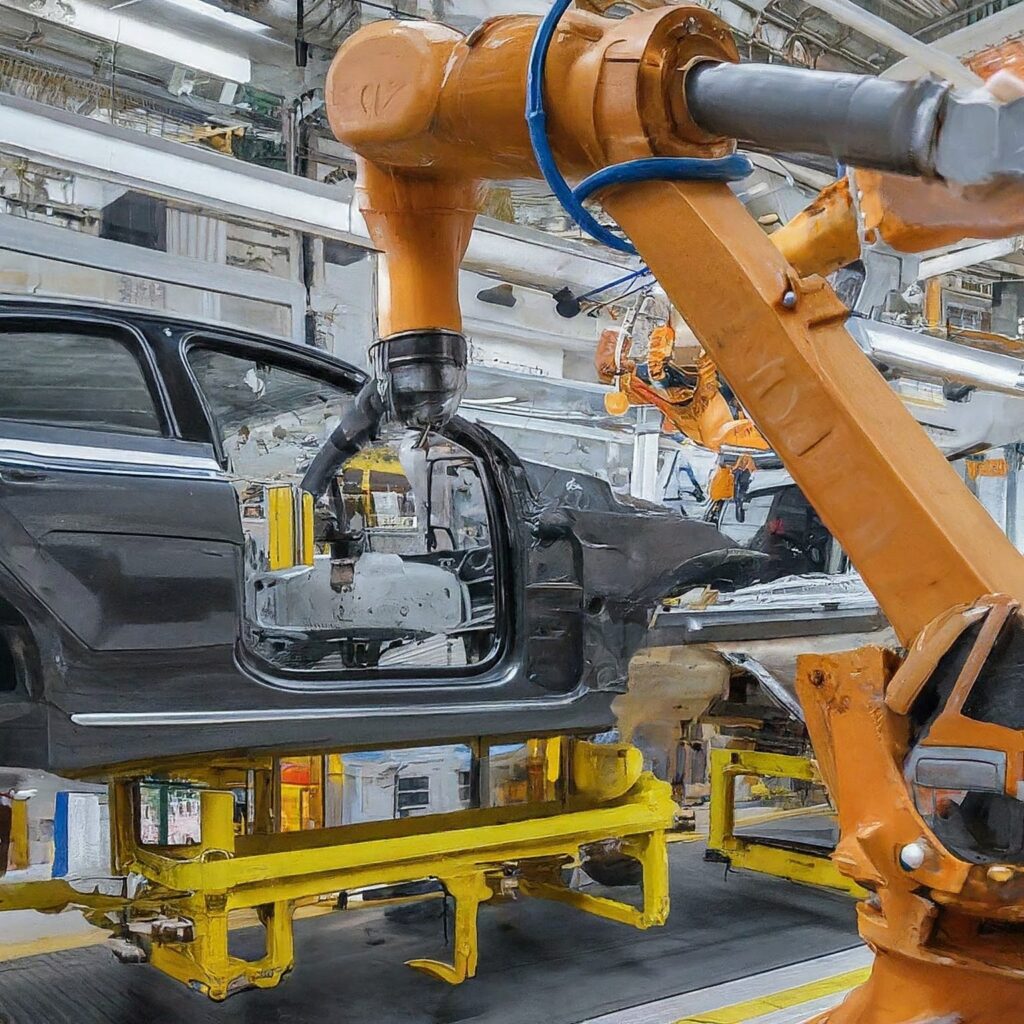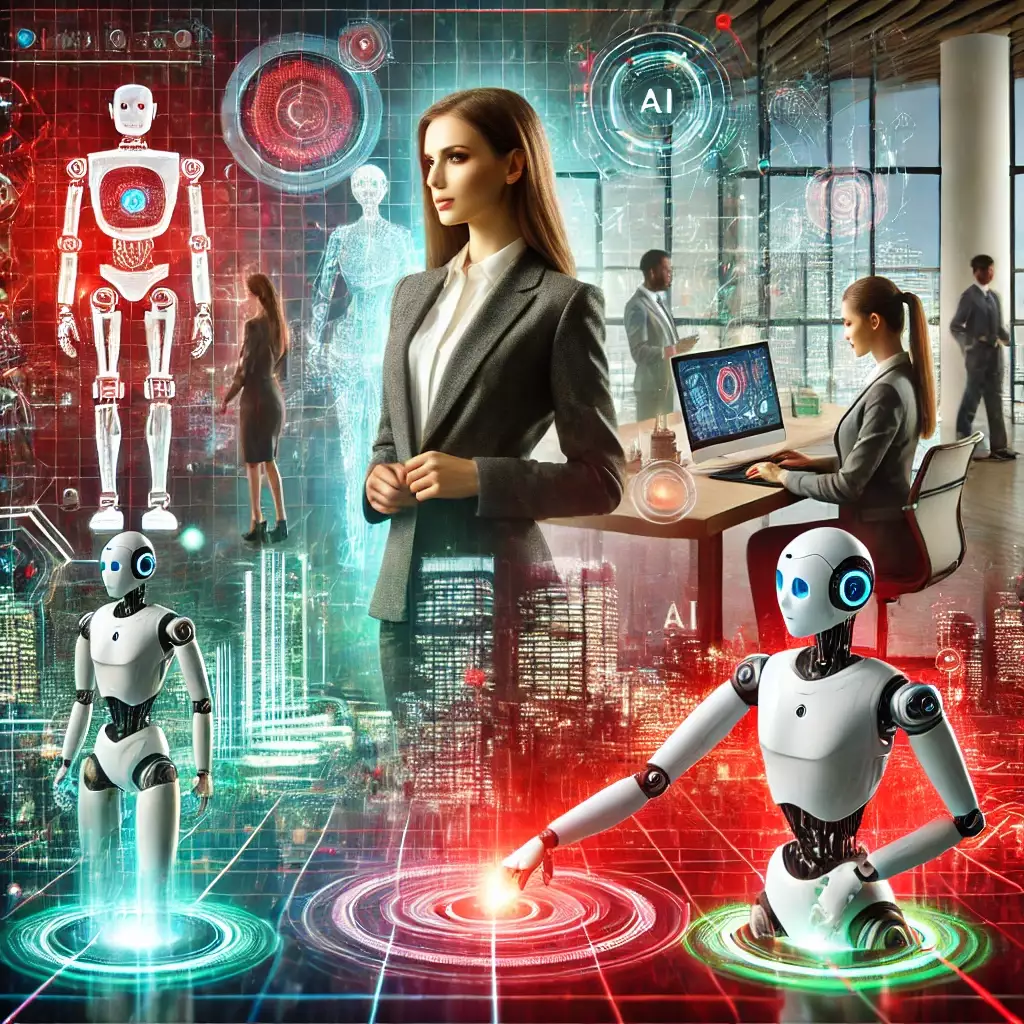The rise of artificial intelligence (AI) is rapidly transforming our world, and the workplace is no exception. While some fear that AI will lead to widespread job displacement, the reality is far more nuanced. AI is here to augment human capabilities, not replace them entirely. The key to success in the age of AI lies in understanding how to leverage this powerful technology and develop the skills that will remain in high demand.
AI’s Growing Role in the Workplace
AI is already making significant inroads into various industries. Here are a few examples:
- Manufacturing: AI-powered robots are automating tasks on factory assembly lines, improving efficiency and productivity.
- Customer service: Chatbots powered by AI are handling routine customer inquiries, freeing up human agents for more complex issues.
- Healthcare: AI is being used to analyze medical images, diagnose diseases, and even personalize treatment plans.
- Finance: AI algorithms are used for fraud detection, risk management, and algorithmic trading.

These are just a few examples, and the list is constantly growing. As AI continues to evolve, its impact on the workplace will only become more profound.
The Skills That Will Matter Most
While some jobs may be lost to automation, new ones will undoubtedly emerge. The key to staying relevant in this changing landscape is to develop the skills that AI cannot replicate. These skills include:
- Critical thinking and problem-solving: AI excels at tasks that are well-defined and repetitive. However, it struggles with complex problems that require creativity and critical thinking. Humans will continue to be needed to tackle these challenges and find innovative solutions.
- Communication and collaboration: The ability to communicate effectively, both verbally and in writing, will remain essential. Strong interpersonal skills will also be crucial for building relationships and collaborating with others, both human and machine.
- Adaptability and lifelong learning: The pace of change in the AI era will be rapid. Workers who can adapt to new technologies and continuously learn new skills will be the ones who thrive.
- Emotional intelligence and empathy: AI lacks the human capacity for emotional intelligence and empathy. These skills will be critical for jobs that involve working with people, such as healthcare, education, and customer service.
Future-Proofing Your Career
Here are some actionable steps you can take to stay relevant and thrive in the age of AI:
- Identify the skills that are in demand in your field:
- Research industry trends and job postings to see what skills employers are looking for.
- Invest in continuous learning:
- There are a wealth of online and offline resources available to help you develop new skills. Consider taking online courses, attending workshops, or pursuing additional certifications.
- Embrace AI as a tool:
- AI can be a powerful asset in the workplace. Learn how to use AI tools and technologies to your advantage.
- Focus on building your network:
- Strong professional connections can be invaluable in a changing job market. Network with other professionals in your field, attend industry events, and build relationships with potential employers.
- Develop your personal brand:
- Make sure your online presence reflects your skills and experience. This includes your resume, LinkedIn profile, and any other online platforms you use.
Statistical Data: Impact of AI on Jobs
A 2020 report by the World Economic Forum estimates that by 2025, up to 85 million jobs could be lost to automation, while 97 million new jobs could be created.
| Statistic | Impact | Source |
|---|---|---|
| Jobs lost to automation by 2025 | 85 million | World Economic Forum |
| New jobs created by 2025 | 97 million | World Economic Forum |
Embracing AI: Process Steps
- Learn AI Fundamentals:
- Understand the basics of AI and how it applies to your industry. Take introductory courses to get acquainted with AI concepts.
- Implement AI Tools:
- Identify AI tools that can streamline your workflow. Tools like AI-powered analytics, automation software, and chatbots can be invaluable.
- Collaborate with AI Experts:
- Work with AI specialists to integrate AI solutions into your processes. Collaboration can provide insights and practical knowledge.
- Evaluate and Iterate:
- Regularly assess the impact of AI on your work. Adjust and optimize the use of AI tools to ensure they are enhancing productivity.
Quote
“The key is not to be afraid of change, but to understand it. It is not to resist the future, but to invent it.” – Alan Kay, computer scientist
Conclusion
The future of work in the age of AI is full of both challenges and opportunities. By developing the skills that AI cannot replicate and taking proactive steps to future-proof your career, you can ensure that you remain relevant and thrive in this exciting new era. Embrace AI as a tool for augmentation rather than a replacement, and focus on continuous learning, adaptability, and building strong professional relationships.




